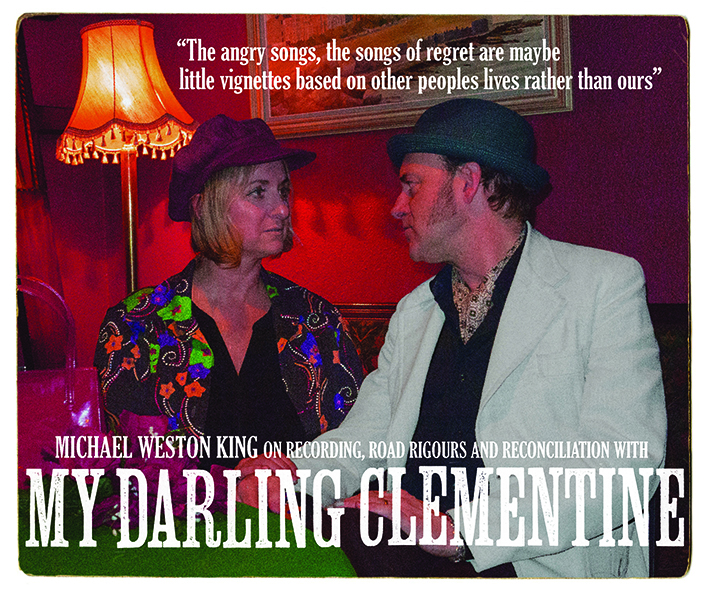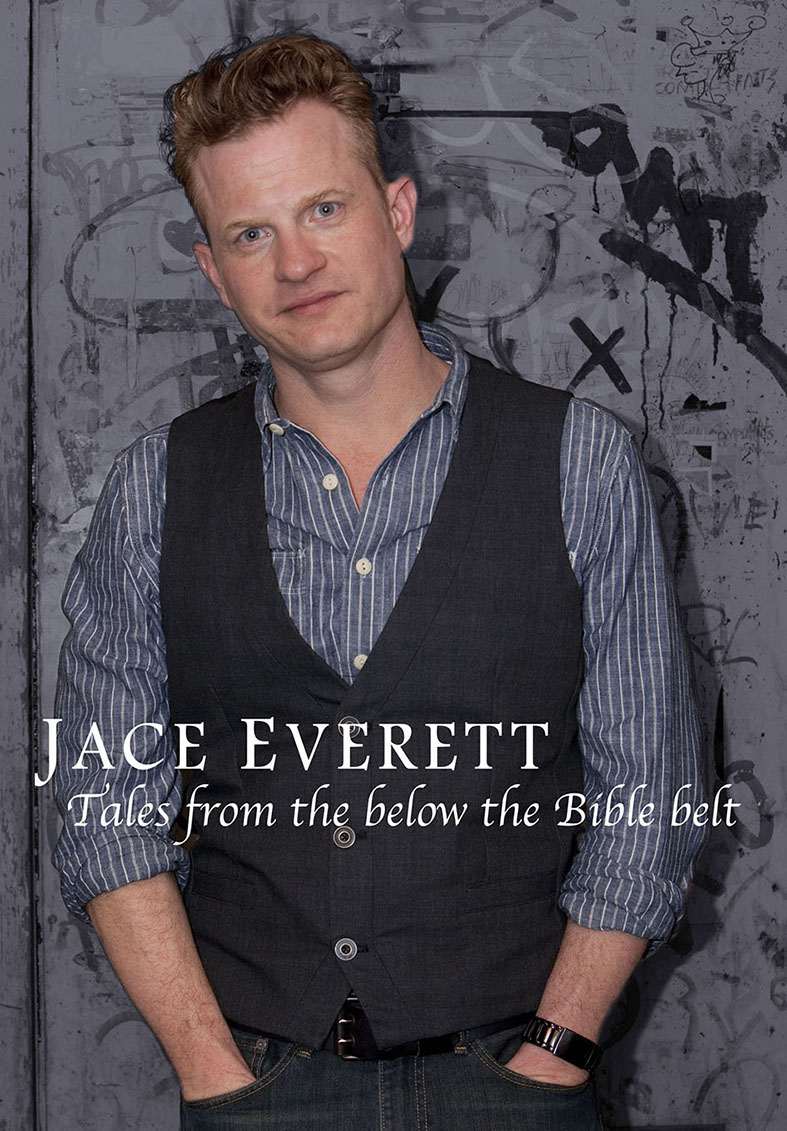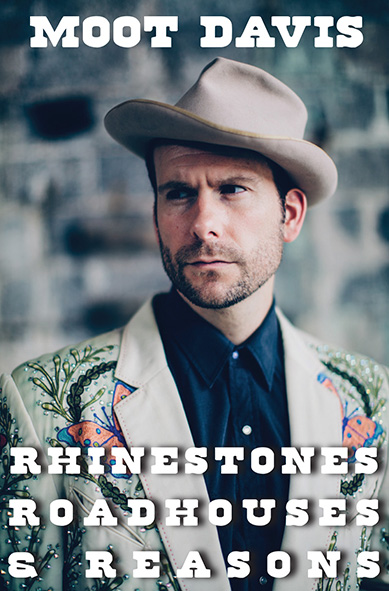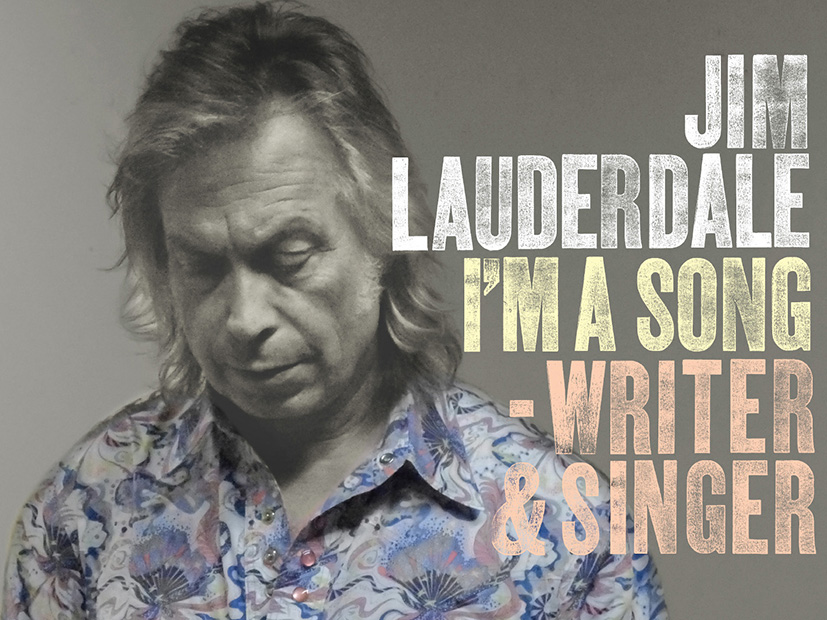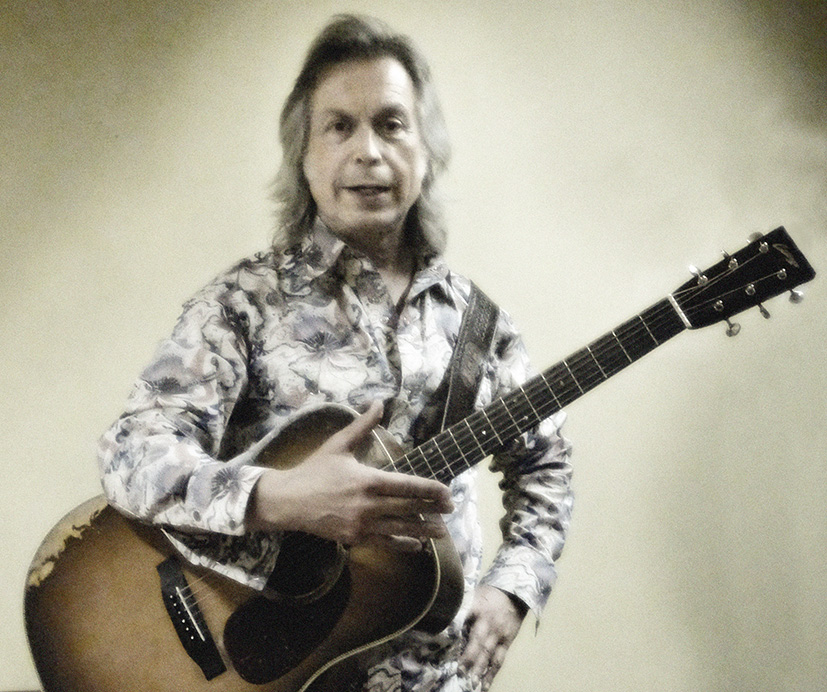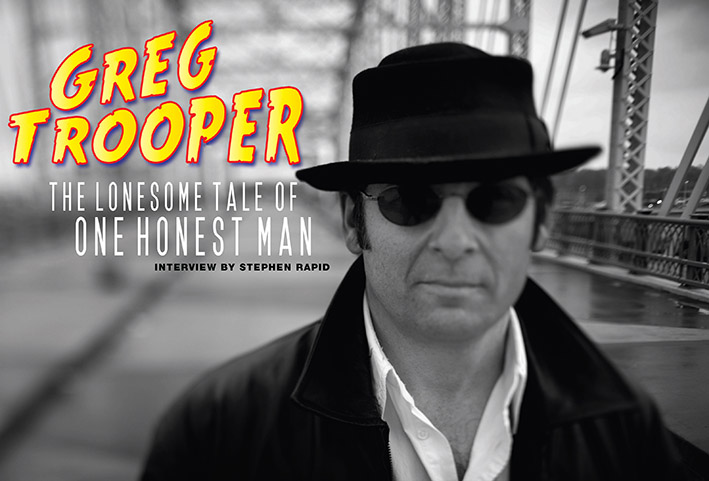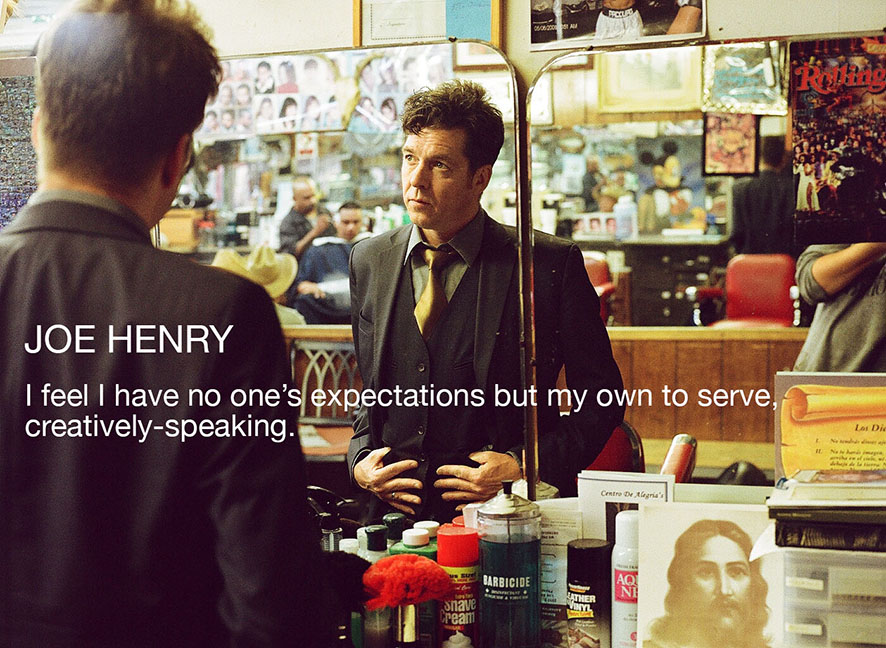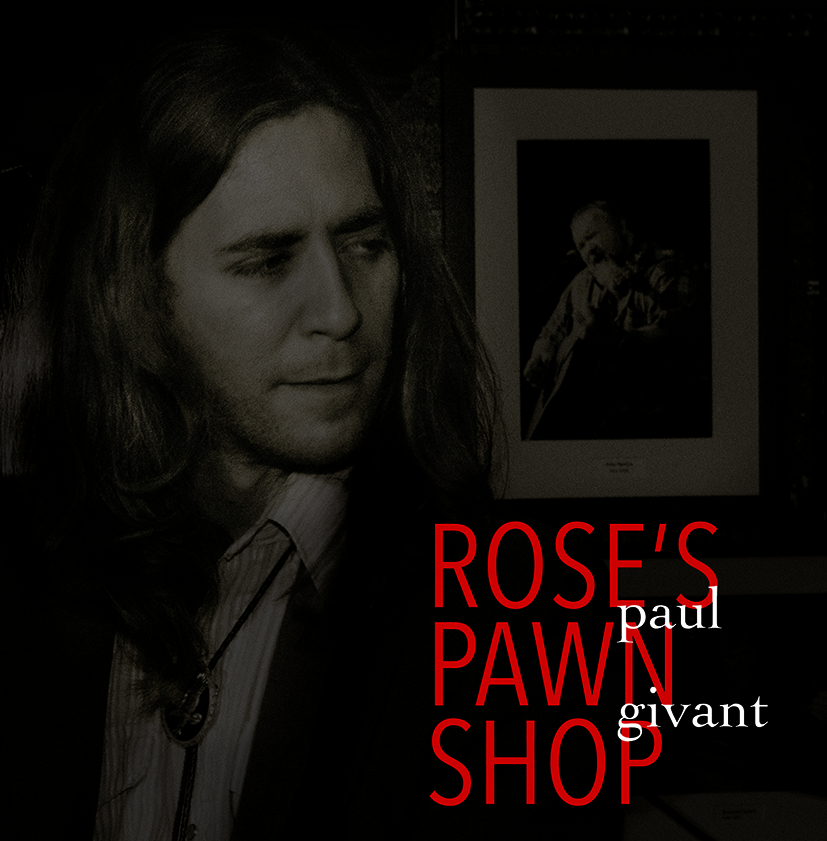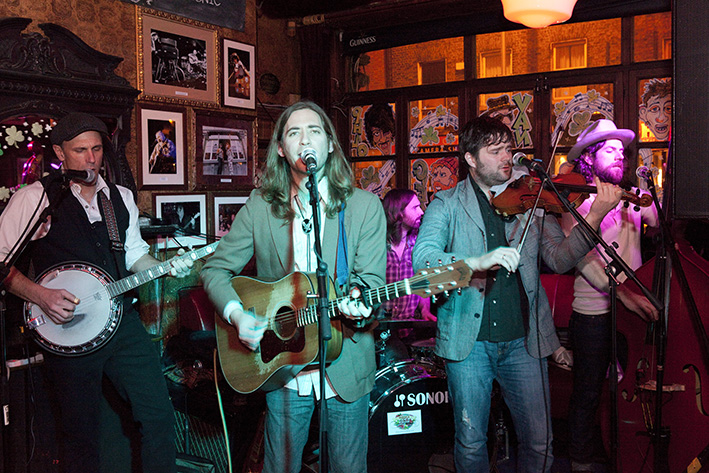
Krista Detor works closely with her partner and producer, David Weber. She released five albums Mudshow, The Silver Wood, Cover Their Eyes, Chocolate Paper Suites and Flat Earth Diary since 2006. An acclaimed singer songwriter she was the only American woman invited to The BBC’s Darwin Songhouse Project. She is a seeker of inspiration wherever and whenever she can find it. She recently spoke to Lonesome Highway.
Your debut release is 2003’s A Dream in a Cornfield. The cover photo is a little girl with angel wings standing in a clearing; is that you dreaming of the future?
I had struggled so long with not having the courage to push forward with the songs I had written, so the idea of having a solo album had been taken off the table. I had a daughter and was trying to raise her when I met with David Weber and the possibility of recording my songs started to become a reality. It felt like a dream come true
David produced it with you and you gave him the following tribute; “He gave the whole thing wings with his talent, brilliance & faith; and who called me back after a year.” Can you elaborate?
I had been playing with some musicians in a rock band and we recorded a session at David’s studio. I thought if I was ever going to be taken seriously with my music, I could not be affiliated with this rock band approach. We were a rag-tag bunch called the Wolfpack and David wanted to know where I had met these guys. We ended up playing some of my songs and he suggested we do a recording. Some months passed and he called to say that he had not forgotten our conversation. I told him that I was still writing songs and we eventually said ‘ok, let’s do this’.
It seems to have been a meeting whose time had arrived. Sometimes people come into our lives for good reason. Your words have always displayed an independence of thought and a very literate quality. Do words and song concepts come easily to you or is it something that reveals itself from playing and writing melody?
I think that sometimes a song can come by way of a melody, The World Is Water for example, but for the most part, I’ll have a song idea and a notion in my head. Usually the song and the lyric come in at the same time but the fleshing out is the musical part.
You released Mudshow in 2006 with David Weber producing again. It is essentially a different group of studio musicians with David engineering and playing a greater role as both player and co-songwriter. We are given striking imagery of elephants and of you walking a tightrope across a city skyline, with strong circus imagery and a theatrical feel to absorb. Was this a metaphor for the world as you saw it?
I think it was the way that I see the world. At that time both David and I had become personally involved and his background is actually the circus. We were in the midst of a political circus with the reaction of America to September 11th, where both bad judgement and lack of foresight had occurred.
The elephants for me represented power and control and the feeling of being squashed by a domineering political party. Beyond that, I have a strong connection with the notion of the elephant, hunted almost to extinction for their tusks, and their sensitive nature. I have been involved in wildlife trusts for the protection of the elephant. So there was a duality.
You now find your music distributed across Europe by the record label CoraZong. This extends your musical reach and you are in the media to a much greater extent. What impact does this have on your life?
It changed pretty much overnight with a high level of press, radio and TV commitments. I was not experienced in touring and had a steep learning curve. Carrie Newcomer in the USA had taken me out on the road previously and I had learned some of the ropes, but to suddenly be in Europe and spending seven weeks on the road was a big change for me and who I was; essentially a songwriter.
People expected that I had all this road experience because I was not a teenager, but this was not the case. At the time music was a ball & chain around my ankle that would not leave me alone. I saw myself as someone who just needed to put a down-payment on a house and trying to find a way to be ok with that.
I had suffered from stage fright in my early 20’s and to be a touring song-writer was not something on the cards. David had faith in me however and through his support and trust I found a way to overcome it without resorting to Beta blockers. David deserves great credit for his belief and he is the reason why I overcame this.
In 2007 came the release of Cover Their Eyes which arrived with more arresting art work and elephant imagery, Kurt Vonnegut quotations about the need for kindness and a very fertile creative period for you.
After the incredible critical reaction to Mudshow, which was not very radio friendly and had a more ambient feel with both dark and pensive moods, Cover Their Eyes was then given the boundaries of trying to be more radio friendly. That can cut into the heart of what you are trying to do and I didn’t feel that it was my most authentic work as a result, even though some very good songs did come out of it.
Listening to it, there appears to be a sad acceptance of the fragility of life and the impermanence of things with a certain melancholy present.
It was there. Between David and I, we had three small children and had come from being one thing to another; the confines of a small recording studio to being everywhere, all the time.
You are always having to redefine yourself and think about touring and how time flies on the road. As a touring musician, you are never where you currently are, but always about one year ahead, in order to remain working down the road.
We wanted to explore the dream we both had and people should never have to give up on those dreams. Part of being a good parent is showing your children what can be accomplished in life, but we had to negotiate this.
In 2009, you were in Shrewsbury for the Darwin Song Project; eight musicians, seventeen songs and an album and live performance completed and delivered in a week. Was this collaborative experience one of liberation? Did it lead you to write or arrange in a different way?
The amount of true writing collaboration was not that much. The musicians did collaborate but the writers worked under extreme deadlines and this was liberating to me as it changed how I viewed myself a songwriter. I work well under deadline and I tend to be pretty creative.
I have a friend who rates Clock of the World as the best song he has ever heard and it moves him to tears every time he plays it. How does it feel to hear such stories and to realise the musical imprint you make?
I have heard that from a number of people and I am very moved when I hear such comments. It was really important to write that song and sculpt it out of the clay; to carve and polish it. I only ever wanted to be the best possible writer I could be; a writer’s writer. This is what I equate to success.
You released Chocolate Paper Suites in 2010, a song suite in five parts. With the same distribution through CoraZong in Europe, David at the controls, more stunning artwork and you, as an artist at the very top of your game.
That was my response to Cover Their Eyes and the direction that the record label had wanted me to take. It was a very personal work and has a beautiful, stark, vibrant imagery and is dedicated to Madeline Krause ‘as she drifts like wishes in the orange blossom air’. She was an autistic child who committed suicide and she was the daughter of close friends.
International travel took over for a few years as you lived some of the imagery of your words with a “great big boat and a steamer trunk”. This included trips to India, Nyaka Aids School, Wildlife Reserves and some acting and some writing (The Art of Science & Sustainability). A sabbatical of sorts & a chance to gain perspective and renewal?
I took time off to spend more time with my children and to become involved with musical collaboration in theatre and university projects. My career had reached a point where I was being allocated a slot in the folk genre of recording artists and I wanted to take a break from where I had arrived.
In 2013 came Flat Earth Diary with new songs, new markets and different challenges. This appears to be a more personal release with the songs reflecting a look back in the rear view mirror.
Yes, the songs were from a more personal perspective and songs like Marietta, Just Because and Hear That reflect old memories that I have. This release came together as the result of a boat trip where there was nothing to contemplate but the horizon, no land in sight and no distractions.
A number of the songs came out of that experience and also, the thought that in the past the world was considered to be flat by all the great minds of the time. It seemed appropriate to revisit our preconceptions and the way that we look at things.
I have always admired the song-writing craft of Krista Detor and her ability to perform at an intimate level with an audience. Words like mature, wistful, literate, elegant, reflective, refined, poignant and whimsical come to mind, bound together by a very theatrical element that runs through her songs.
I return to that first recording and a credit to her children, Aurora, Lena & Isla – ‘for all the wide-eyed wonder.’ This seems to capture the essence of Krista Detor, and this feeling has not diminished over time. We have been given the gift of a talented woman at play with the world and long may she run.




